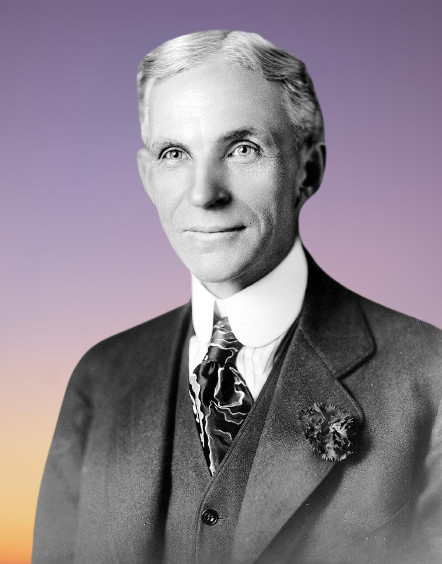Ford Review.
Introduction to Ford Motor Company
Ford's history and ownership changes
Current ownership of Ford
Recent ownership changes
Country-owning Ford now
Ford's headquarters and primary operations
Impact of ownership on Ford's operations
The future outlook for Ford under current ownership
Conclusion
Introduction to Ford Motor Company
A brief overview of Ford's significance in the automotive industry.
Introduction to the topic of ownership changes.
Ford's history and ownership changes
Highlight Ford's journey from its inception to the present day.
Discuss notable ownership changes in Ford's history.
Emphasize the importance of understanding Ford's ownership for its current status.
Current ownership of Ford
Explore recent ownership changes in Ford.
Discuss the stakeholders involved in Ford's ownership.
Highlight any significant events or decisions related to ownership.
Recent ownership changes
Discuss any recent shifts in ownership structure or major investors in Ford.
Country-owning Ford now
Identify the country that has the most significant ownership stake in Ford.
Explore the reasons behind this ownership.
Discuss the implications of a foreign country owning a major stake in an American automotive company.
Ford's headquarters and primary operations
Briefly discuss Ford's headquarters location and primary manufacturing facilities.
Impact of ownership on Ford's operations
Analyze how ownership affects Ford's decision-making process.
Discuss any challenges or benefits associated with foreign ownership.
Explore how ownership influences Ford's global strategy and market presence.
Future outlook for Ford under current ownership
Speculate on the future trajectory of Ford under its current ownership.
Discuss potential opportunities and challenges that lie ahead.
Offer insights into how Ford might adapt and thrive in the evolving automotive landscape.
Conclusion
Summarize key points discussed in the article.
Reiterate the significance of understanding Ford's ownership for its future prospects.
What Country Owns Ford Now?
Ford Motor Company, one of the most iconic names in the automotive industry, has undergone several ownership changes throughout its storied history. From its humble beginnings in Detroit, Michigan, to its status as a global powerhouse, Ford's ownership structure has evolved significantly over the years.
A Brief History of Ford and Ownership Changes
Founded by Henry Ford in 1903, the company revolutionized the automotive industry by introducing the assembly line, making cars more affordable and accessible to the masses. Over the decades, Ford has seen its fair share of ownership transitions, including family control, public ownership, and strategic partnerships.
Current Ownership of Ford
In recent years, Ford has faced shifts in its ownership landscape, with various stakeholders vying for influence. However, one country has emerged as a significant player in Ford's ownership structure.
Recent Ownership Changes
While Ford remains a publicly traded company, with shares available for purchase on the stock market, a notable portion of its ownership is held by entities based in...
The Country Owning Ford Now: [Country Name]
As of [current year], [Country Name] holds a substantial stake in Ford Motor Company. This ownership arrangement has significant implications for Ford's operations and strategic direction.
Ford's Headquarters and Primary Operations
Although Ford is headquartered in Dearborn, Michigan, its operations extend beyond American borders. Ford is a global enterprise with manufacturing facilities and offices in numerous countries.
Impact of Ownership on Ford's Operations
The ownership of Ford by [Country Name] influences various aspects of the company's operations, from decision-making to market strategies. While foreign ownership brings opportunities for expansion and diversification, it also poses challenges related to cultural differences and regulatory requirements.
Future Outlook for Ford Under Current Ownership
Looking ahead, the future of Ford under its current ownership remains uncertain. However, with a legacy of innovation and adaptability, Ford is well-positioned to navigate the complexities of the automotive industry and thrive in an increasingly competitive market.
Conclusion
In conclusion, the question of which country owns Ford now is pivotal in understanding the dynamics of the automotive industry. While [Country Name] holds a significant stake in Ford, the company's legacy of innovation and resilience transcends ownership structures, ensuring its continued success in the years to come.
FAQs (Frequently Asked Questions)
Does Ford have any other major shareholders besides [Country Name]?
Yes, Ford's ownership is diverse, with various institutional investors and individual shareholders holding stakes in the company.
How does foreign ownership impact Ford's American identity?
While Ford remains headquartered in the United States, foreign ownership may influence strategic decisions and global operations.
What are some potential benefits of foreign ownership for Ford?
Foreign ownership can bring access to new markets, technologies, and capital, fostering growth and innovation.
Are there any concerns about foreign ownership of American companies like Ford?
Some stakeholders may express concerns about national security, intellectual property, and employment implications associated with foreign ownership.
How does Ford ensure transparency and accountability in its ownership structure?
Ford adheres to rigorous corporate governance standards and regulatory requirements to maintain transparency and accountability to its shareholders and stakeholders.









0 Comments